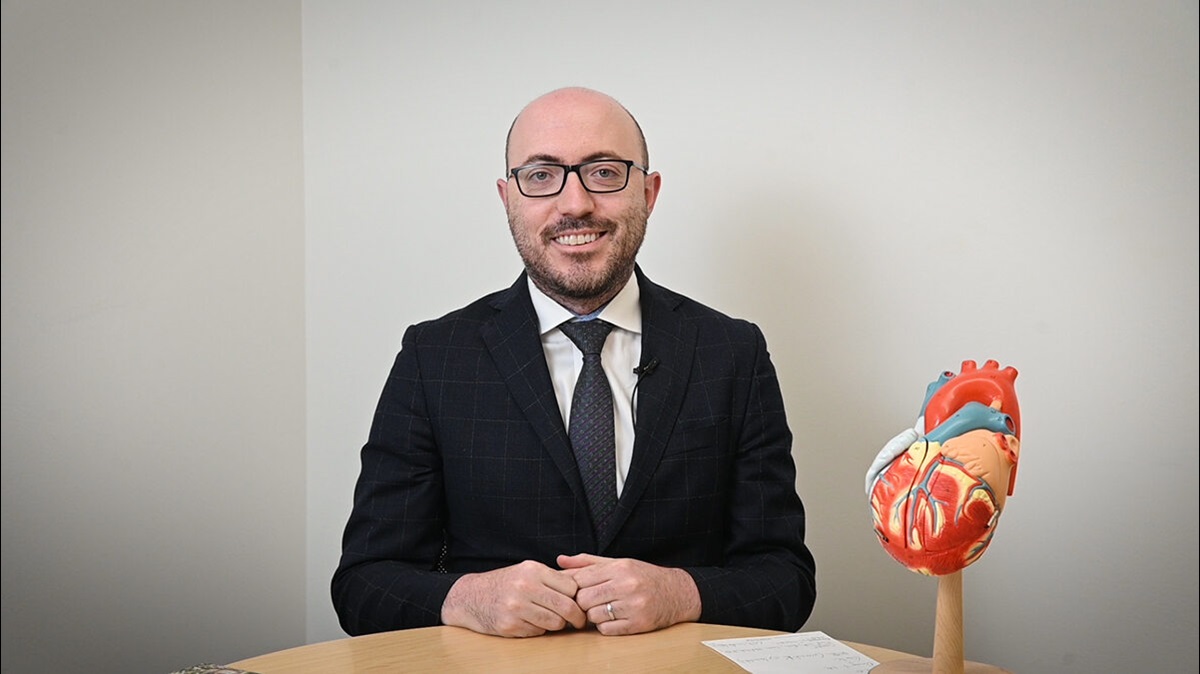When should you take your blood pressure medication?
December 17, 2019

Luke Laffin, MD, is a preventive cardiologist and Medical Director of Cardiac Rehabilitation in the Section of Preventive Cardiology, who specializes in difficult to treat blood pressure. Dr. Laffin addresses the question: When is the best time to take blood pressure medications?
Subscribe: Apple Podcasts | Buzzsprout | Spotify
When should you take your blood pressure medication?
Podcast Transcript
Announcer:Welcome to love your heart brought to you by Cleveland Clinic's Sydell and Arnold Miller Family Heart And Vascular Institute. These podcasts will help you learn more about your heart, thoracic and vascular systems, ways to stay healthy and information about diseases and treatment options. Enjoy
Dr. Laffin:
My name's Luke Laffin and I'm a preventive cardiologist here at the Cleveland Clinic. I also specialize in the management of difficult to control blood pressure or resistant hypertension. I'm getting a lot of questions these days about when it's the best time to take your blood pressure medicines. Now this is a particularly important point because there was a large study produced from Spain at the end of 2019 looking and saying that we decrease our risk of cardiovascular events if we take our blood pressure medicines at night.
Dr. Laffin:
Now there's been multiple studies before this that didn't show such an effect, so we're still waiting for these results to be replicated. However, I think that it does bring up some important points about when I tell patients to take their blood pressure medicines.
Dr. Laffin:
First and foremost, if you're taking diuretics, so water pills, it's best to take those earlier in the day. One thing that we know contributes to adverse cardiovascular outcomes is poor sleep. So I don't want my patients getting up in the middle of the night to urinate and if we're taking our diarrhetics right before we go to bed, we do risk that happening.
Dr. Laffin:
What I'll oftentimes recommend to individuals is if you're taking medications and such as beta blockers or calcium channel blockers or blockers of the renin-angiotensin system like ACE inhibitors or angiotensin receptor blockers, I think it's very reasonable to take those in the evening, and oftentimes I'll tell my patients to do that.
Dr. Laffin:
The main reason for that is most of these medicines work for 24 hours, but we know they're going to have their peak effect about two to three hours after we take them. So taking them at night helps keep blood pressure low at night. Also helps to avoid any side effects from blood pressure going too low when they're having their peak effect.
Dr. Laffin:
Now, irrespective of all this, I think it's important to understand that because most of these medicines do last over 24 hours, it probably doesn't make a huge difference when you take them in terms of efficacy and controlling blood pressure. The biggest factor that we have to remember is "take them."
Dr. Laffin:
Patient adherence and medication adherence is very important and that leads to better cardio vessels.
Announcer:
Thank you for listening. We hope you enjoyed the podcast. We welcome your comments and feedback. Please contact us at heart@ccf.org.
Like what you heard? Please subscribe and share the link on iTunes.

Love Your Heart
A Cleveland Clinic podcast to help you learn more about heart and vascular disease and conditions affecting your chest. We explore prevention, diagnostic tests, medical and surgical treatments, new innovations and more.


